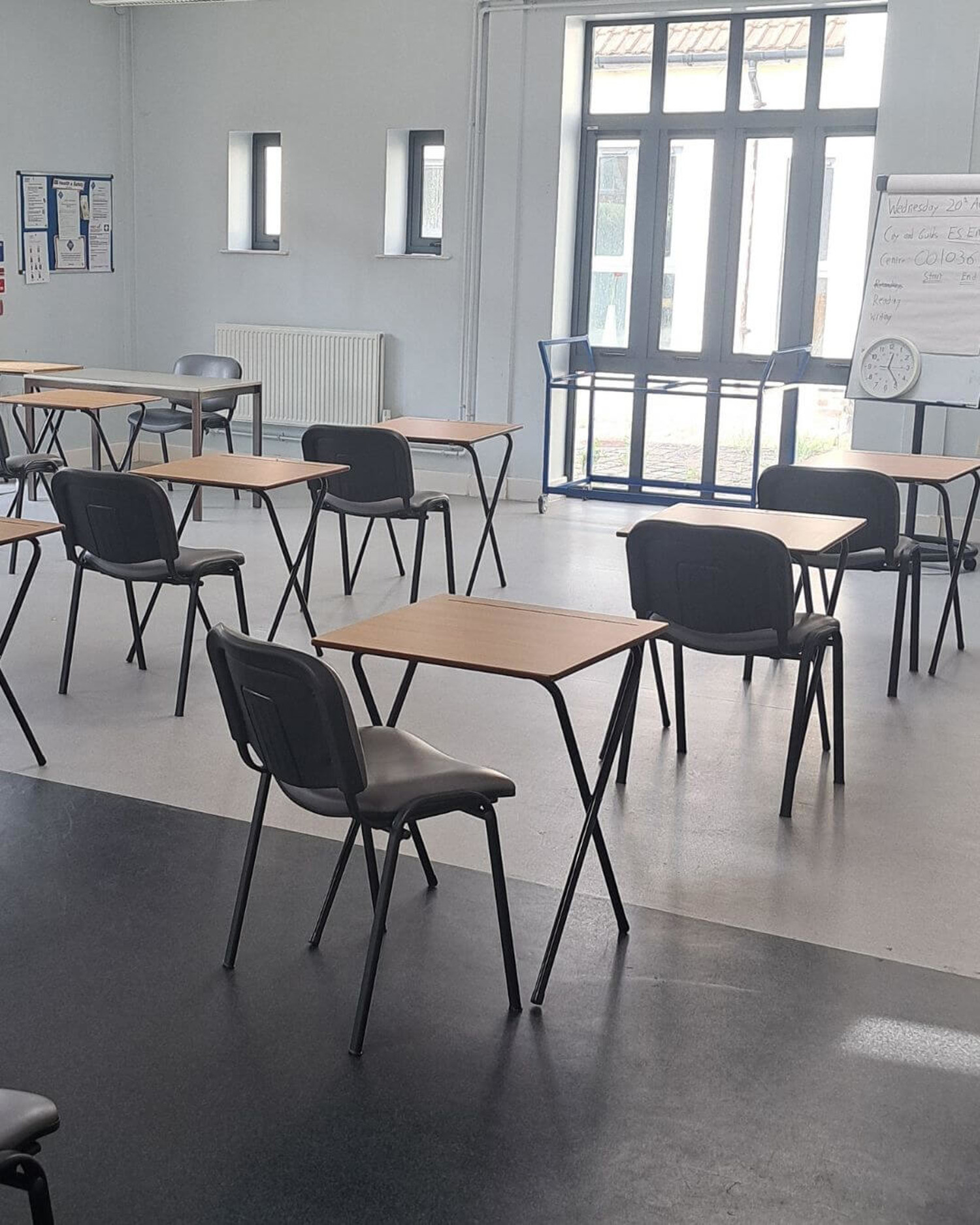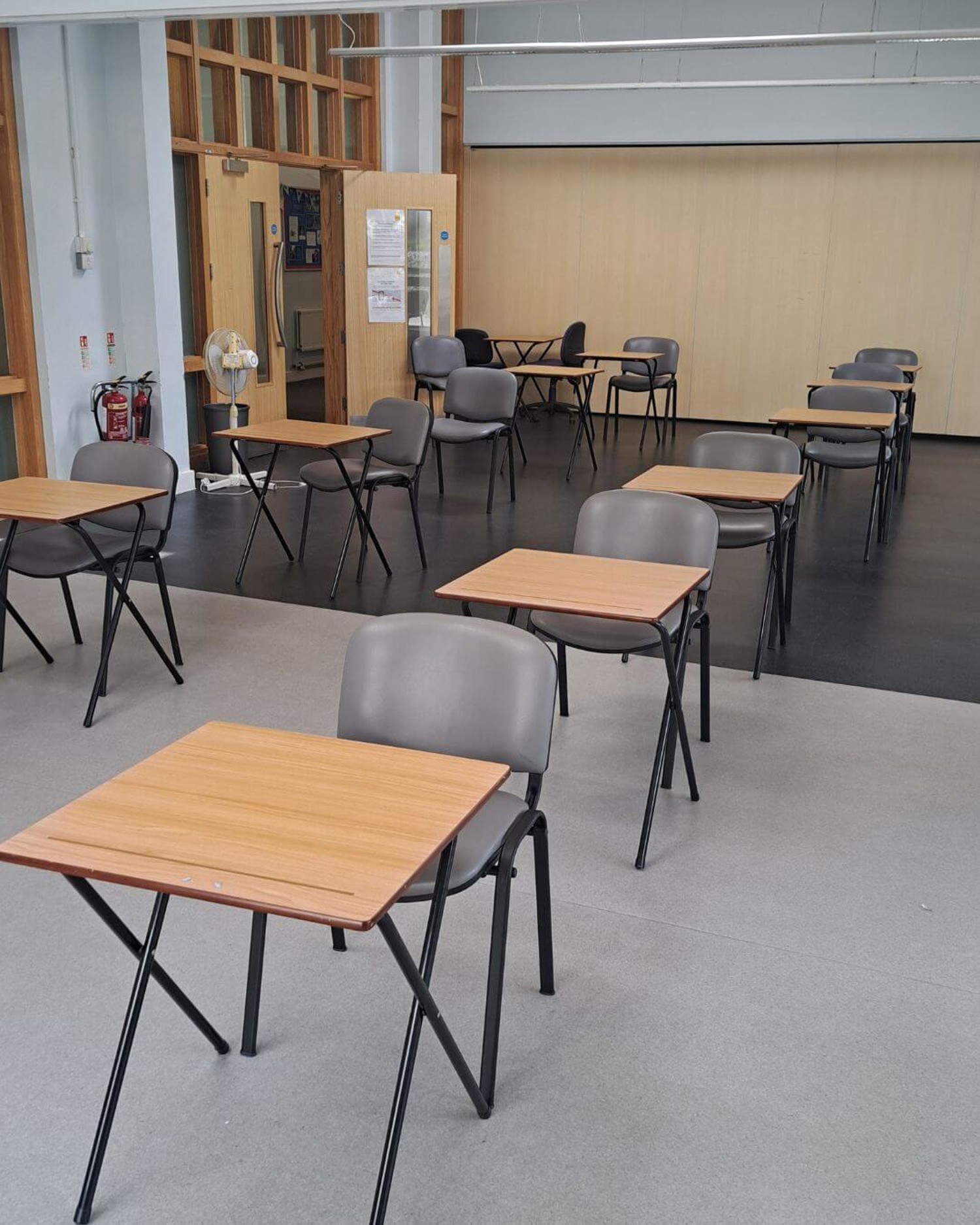We use necessary cookies to make our website work. We’d also like to set analytics cookies that help us make improvements to our website. For more detailed information about the cookies we use, read our Cookie Policy.
- Home
- Exams Information for Learners
Exams Information for Learners
Whether you're working towards a Functional Skills qualification, ESOL, GCSE or another course, exams are an important part of your learning journey at Kent Adult Education. This page is designed to give you all the essential information you need - from how to prepare and what to bring, to what happens on the day and what to expect afterwards. We know exams can be stressful, but with the right support and guidance, you can approach them with confidence. Read on for practical tips, key rules and helpful advice to make sure you're fully prepared and ready to succeed.

Preparing for Your Exam
Preparing for an exam can feel overwhelming, but with the right approach, you can boost your confidence and performance. It's important to balance academic preparation with personal wellbeing to ensure you're mentally and physically ready. Below are practical tips to help you revise effectively and take care of yourself in the lead-up to your exam.
Academic Preparation
- Revision resources: Use BBC Bitesize, Skillswise, course handouts and online practice papers.
- Create a revision timetable: Break topics into manageable chunks and schedule regular review sessions.
- Ask your tutor: They can guide you on key topics, exam strategies and effective revision techniques.
Wellbeing Tips
- Sleep well: Aim for 7-9 hours of sleep before your exam.
- Eat regularly: A nutritious breakfast or lunch helps with focus and energy.
- Stay hydrated: Bring a clear water bottle to your exam.
- Take breaks: Short walks, breathing exercises or stretching can reduce stress.
- Talk it out: Share any worries with your tutor or a trusted friend.
- Prepare mentally: Visualise success and use positive affirmations.
Access Arrangements
If you need extra time, a scribe, coloured paper or other support, tell your tutor early. They'll submit a request to the Exams Officer, and you may need to provide medical evidence. Access arrangements cannot be made on the day of the exam.
Before Exam Day
You'll receive an email confirmation with:
- Exam level and component (for example Reading, Writing)
- Exam date, time and venue
- What to bring
- Exam regulations
Arrive at least 45 minutes early to check in and settle.
You'll be shown to the waiting room for ID checks and registration.
Personal items go in the bag room - only bring essentials into the exam.
What to Bring
Photo ID (This is essential - no ID, no exam)
You need to bring at least one of the following:
- Passport
- Driving licence
- Residence permit
- Citizen Card
Subject-specific items:
- English: Pen (blue or black), dictionary (if allowed)
- Maths: Pen, pencil, ruler, eraser, calculator, protractor (depending on level)
Please use a blue or black ink pen that is not erasable or a gel pen, as these types of pens may not be suitable for exam marking. If you forget something, the invigilator may be able to lend you equipment.

What to Expect in the Exam Room
Walking into an exam room for the first time can feel a bit daunting if you're not sure what to expect. Knowing the setup and rules in advance can help you feel more at ease and ready to focus on doing your best. Below is a breakdown of what you'll typically find in the exam room, along with important conduct guidelines to follow during the exam.
- Your desk will have your name on it
- At least one Invigilator will be present
- A clock will be visible at the front
- Invigilators will:
- Tell you when to start and finish
- Give a 5-10 minute warning before the end
- Monitor the room and assist with non-content issues
At the front of the exam room, you'll see a board displaying key details about your exam. This includes the exam date, the exam board, the level of the paper and the official start and end times. A clock will also be clearly visible to help you manage your time during the exam. Make sure to check this information when you enter the room so you're fully aware of the schedule and can pace yourself confidently.
Exam Conduct Rules
There are very specific and very strict rules for exam conduct. These will be on posters outside the exam room and on the walls inside the exam room. The Exams Officer or Invigilator will explain these before the exam starts, so listen carefully.
- No talking or communication with other candidates
- No study materials or notes allowed
- No phones, smartwatches or electronic devices
- Raise your hand if you need help
Cheating = disqualification and possible ban from future exams.
AI and Exams
Kent Adult Education is currently reviewing its policy on AI use in exams. Please check with your tutor or the Exams Officer for the latest guidance.

Tips for a Smooth Exam Day
Preparing for your exam is more than just studying - there are a few important things to keep in mind to make sure everything runs smoothly on the day. Here are some key tips and reminders to help you feel confident and ready:
- Access Arrangements: If you need any special arrangements (like extra time or support), these must be organised before exam day. The Exam Officer cannot make changes on the day, so speak to your tutor as soon as you ask to be entered for the exam.
- Re-Sits: If you don't pass your exam the first time, don't worry - you can re-sit. Just ask your tutor to enter you again. Functional Skills exams usually run monthly, and you might be able to re-sit sooner at a different centre. ESOL exams are held on set dates, so check with your tutor for re-sit options. GCSE re-sits are only available once a year in November (for those who took exams in June).
- Be Prepared: Always check you have everything you need before exam day. Don't forget your ID - it's essential. Make sure you have planned your travel route in advance and have any equipment you may need.
- Exam Conduct: Never try to copy another candidate's work, ask for help, or bring any notes or study materials into the exam room. Cheating can lead to disqualification and being banned from future exams.
- Devices: Do not bring your phone, laptop, smartwatch or any other device into the exam room. Make sure it's switched off or on silent and left in the designated bag room.
- Time Management: Keep your whole day free for the exam. Start and finish times can vary, so avoid booking appointments right after. If you need time off work, try to take the full day - you'll appreciate the chance to relax afterwards!
If you have any questions or concerns, speak to your tutor or the Exam Officer well in advance. Good luck - you've got this!

Understanding Your Exams and Next Steps
Once your exam is over, it's natural to look ahead to your results and what comes next. Understanding how and when you'll receive your results and certificates can help you plan your next steps with confidence. It's also useful to know your options if you need to re-sit an exam or want to find out when the next opportunity is available. Here's what you need to know:
Results & Certificates
- Results usually arrive within 4 weeks, but may take longer during busy periods.
- The Exams Officer will send results to your tutor or email them directly to you.
- Certificates are sent to the centre and you'll be contacted when they're ready for collection.
Re-Sits & Exam Frequency
- Functional Skills: Monthly exams available - ask your tutor.
- ESOL: Set dates only - check with your tutor.
- GCSE: Re-sits available once a year in November (for June exams).
Frequently Asked Questions
It's completely normal to have questions before your exam - especially about what to bring, what to expect and what to do if something goes wrong. This section covers some of the most common queries students have, so you can feel more prepared and confident on the day. If you're ever unsure, don't hesitate to ask your tutor or the Exams Officer for guidance.
You may not be allowed to sit the exam. Always double-check you have it before leaving home.
No. Phones must be switched off and stored in the bag room.
Raise your hand and speak to the invigilator. They'll help you safely and discreetly.
No. Invigilators cannot explain or interpret exam content.
You can re-sit. Speak to your tutor about the next available date.
You'll receive them by email or from your tutor. Certificates will be available for collection later.
Yes. You'll have time in the waiting room before the exam starts.
Comfortable clothing suitable for the weather. You may be in the exam room for several hours.
Your Exam Journey at Kent Adult Education
You've taken a big step by preparing for your exams - and that's something to be proud of. Whether you're aiming to boost your skills, gain a qualification, or open doors to new opportunities, Kent Adult Education is here to support you every step of the way. Remember, exams are just one part of your journey. If you're thinking about what comes next - whether it's further study, a new career path, or personal development - our team can offer careers education, advice and guidance to help you plan your future with confidence.
Stay positive, stay prepared and believe in yourself. You've got the tools, the support and the determination to succeed. Good luck with your exams.
E-newsletter sign up
Fill out the form below to sign up to receive our emails. You’ll get the latest news, events and new courses.
